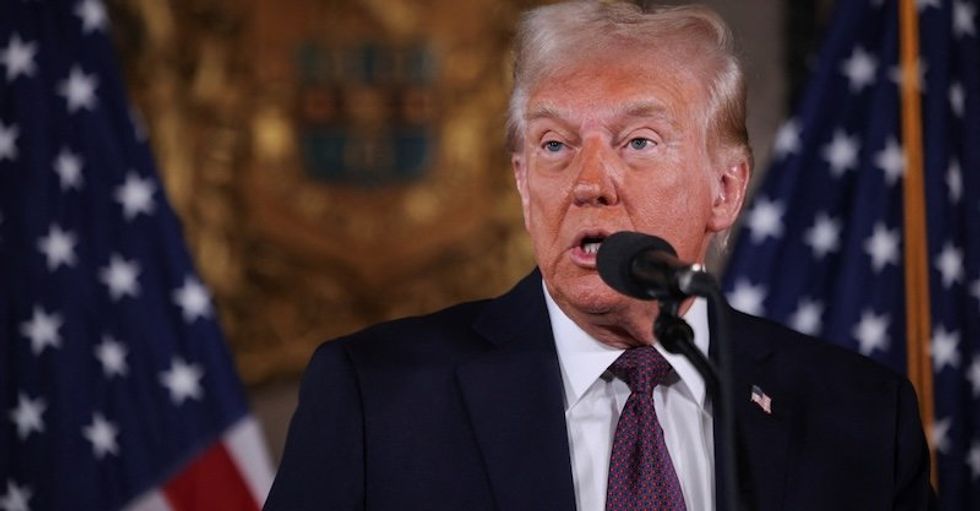In January, President Vladimir V. Putin of Russia firmly dismissed the notion of a temporary cease-fire in Ukraine.
However, following a month where President Trump shifted American foreign policy dramatically and Russian forces advanced in a critical conflict, the Kremlin now seems willing to consider the 30-day cease-fire proposal put forth by Ukraine and the United States on Tuesday.
Dmitri S. Peskov, spokesperson for Mr. Putin, stated to reporters on Wednesday that the Kremlin was “carefully analyzing” the results of Tuesday’s discussions between the United States and Ukraine concerning the suggestion for a month-long cease-fire.
He mentioned that the United States is expected to share with Russia the “details of the negotiations and the understandings that were achieved” in the days to come. He also indicated the possibility of another phone conversation between Mr. Putin and Mr. Trump, highlighting that the Kremlin views the cease-fire proposal as part of a larger diplomatic effort.
Mr. Putin has experienced a swift change in his geopolitical circumstances over the last month as Mr. Trump has adjusted American foreign policy to favor Russia, creating friction with U.S. allies and sharply criticizing President Volodymyr Zelensky of Ukraine in the White House.
However, the joint cease-fire proposal from the United States and Ukraine presents a challenge for Mr. Putin. It intensifies the contradiction between his ambitions for a significant victory in Ukraine and his desire for strong relations with Mr. Trump.
While Mr. Trump advocates for a swift end to the war, Mr. Putin has indicated that he will continue the fight until he obtains substantial concessions from the West and from Kyiv, including assurances that Ukraine will not join NATO and that the alliance will scale back its presence in Central and Eastern Europe.
On January 20, when he congratulated Mr. Trump on his inauguration, Mr. Putin emphasized that the objective of any discussions regarding Ukraine should be “not a fleeting cease-fire, but rather a lasting peace.” Russia, he asserted, is aiming for “a long-term peace that respects the legitimate interests of all peoples and nations in the region.”
Experts believe Mr. Putin’s initial resistance to a temporary cease-fire was based on the simple assessment that as Russian forces gained ground, Moscow would relinquish its leverage by halting combat without obtaining concessions.
Nevertheless, a phone conversation between Mr. Putin and Mr. Trump on February 12, along with the White House’s subsequent alignment with Russia at the United Nations and beyond, may have influenced Mr. Putin’s calculations, making him more eager to maintain positive relations with Mr. Trump, analysts suggest.
This creates a precarious balancing act for the Kremlin.
Ilya Grashchenkov, a political analyst in Moscow, commented that the Kremlin might be inclined to accept a cease-fire that could be “tactically disadvantageous but strategically beneficial” to demonstrate that it is a proponent of peace.
While Russian representatives were not present at Tuesday’s discussions in Jeddah, Saudi Arabia, the Trump administration has maintained engagement with the Kremlin. According to Russian news reports, John Ratcliffe, the C.I.A. director, spoke with his Russian counterpart, Sergei Naryshkin, on Tuesday.
Moreover, Steve Witkoff, the envoy for Mr. Trump who held lengthy discussions with Mr. Putin last month, is expected to return to Russia in the coming days, as confirmed by two sources familiar with the plans, who spoke on the condition of anonymity. On Tuesday afternoon, Mr. Trump informed reporters that he anticipated speaking with Mr. Putin this week and expressed hopes for a lasting cease-fire to be negotiated shortly.
“It is certainly within the realm of possibility that the Russians might accept this,” said Samuel Charap, a Russia analyst at the RAND Corporation, referring to the 30-day proposal. “Not because they desire an unconditional, temporary cease-fire, but because they now have a vested interest in their relationship with Washington.”
In another indication of Moscow’s outreach to the Trump administration, Russia’s foreign ministry released a 90-minute interview on Wednesday featuring Foreign Minister Sergey V. Lavrov speaking with three American video bloggers, including former Fox News personality Andrew Napolitano.
Speaking in English, Mr. Lavrov commended the Trump administration for reversing the Democrats’ “departure from Christian values” and stated that Russia is prepared for the “normal relations” that the United States is proposing.
Mr. Putin’s strategy may also be influenced by Russia’s recent successes in driving Ukrainian forces out of Kursk, a border region where Ukraine had overtaken several hundred square miles of territory in a surprise offensive last August.
Mr. Zelensky had indicated that he intended to leverage that land in future negotiations; however, the Kremlin has signaled that it would not engage in talks while Ukraine retains control of the territory.
With most of the Kursk region now under Russian control, Mr. Putin may feel less concerned about losing credibility by agreeing to a cease-fire that would leave Ukraine in possession of a significant area of Russian territory, according to Sergei Markov, a pro-Kremlin political analyst in Moscow.
Nataliya Vasilyeva and Ivan Nechepurenko contributed reporting.













 Bengali (Bangladesh) ·
Bengali (Bangladesh) ·  English (United States) ·
English (United States) ·